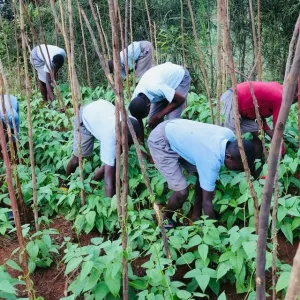Cultivating Health: How School Gardens Are Powering Kigali’s School Feeding Program
In the vibrant city of Kigali, a quiet yet impactful revolution is taking place in 150 schools across the Gasabo, Kicukiro, and Nyarugenge districts. The school feeding program has embraced a sustainable and innovative approach that is transforming the way nutrition is delivered to students. Teachers and students from these schools are actively involved in cultivating high-iron beans, a key

Cultivating Health: How School Gardens Are Powering Kigali’s School Feeding Program
In the vibrant city of Kigali, a quiet yet impactful revolution is taking place in 150 schools across the Gasabo, Kicukiro, and Nyarugenge districts. The school feeding program has embraced a sustainable and innovative approach that is transforming the way nutrition is delivered to students. Teachers and students from these schools are actively involved in cultivating high-iron beans, a key crop aimed at combating malnutrition and improving the health of schoolchildren. This initiative not only addresses immediate nutritional needs but also aligns with a broader vision to enhance the long-term sustainability and effectiveness of the school feeding program.
Why Beans?
Beans are a nutritional powerhouse, packed with protein, iron, fiber, and essential vitamins. These vital nutrients are key in combating malnutrition, especially in Kigali, where certain communities face significant nutritional challenges. By incorporating high-iron beans into school meals, the program addresses issues like anemia and other health problems related to iron deficiency among schoolchildren, providing a much-needed boost to their overall health.

